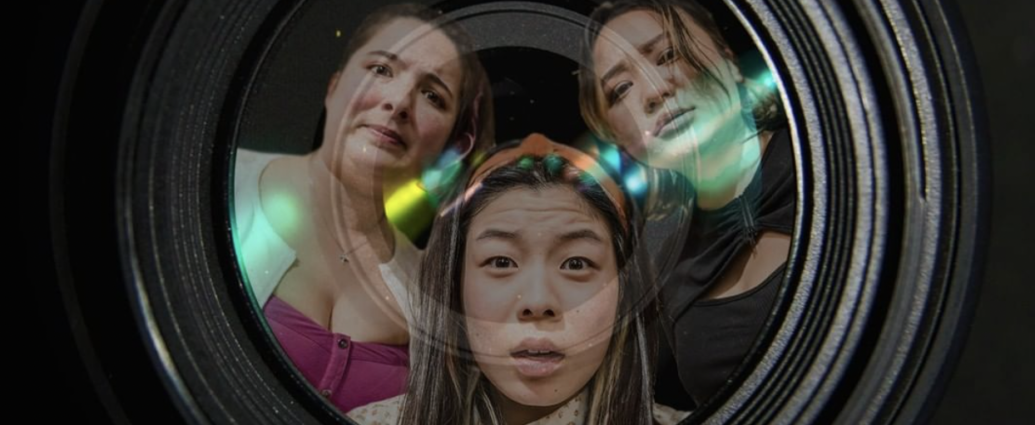It’s been a long pandemic for everyone in the Arts & Culture world, but it’s been particularly challenging for live theater—you know things are bad when even the Guthrie has to cancel some showings of A Christmas Carol! Now that it’s possible to once again do a run of performances, we’re excited to see new and exciting productions from groups like the Theater Mu, Minnesota’s only pan-Asian performing arts organizations and one of the largest Asian American theater companies in the United States. Ahead of the new production for Man of God, we connected with Theater Mu’s Artistic Director Lily Tung Crystal.
One of our goals at Mu is to push forward representation of Asian American theater artists not only onstage, but backstage, so we’re being intentional about supporting directors, designers, dramaturgs, and stage managers in our space.
| DISPATCH: In-person theater! It’s exciting and daring and nerve-racking. How are you feeling going into the run? In-person theater at this time IS exciting and daring and nerve-racking. During the pandemic, we were grateful that we could build community and reach global audiences through our virtual work, but nothing can replace the sharing of energy and emotion when the audience and the artists connect and imagine in the same house together. And while we’re rejoicing that we can go back to in-person theater, it can be stressful. We feel good going into this run, though, as we’re being very intentional and making sure our audiences and artists are safe in our space. We’ve implemented robust safety guidelines for our company, including regular tests, masked rehearsals, and having our COVID Safety Coordinator Sterling Miller on-site at all times. We have a team of understudies for both actors and stage managers ready to step in. And we’re requiring our audiences to show vaccination cards or a recent lab test to enter the theater and that they remain masked through the show. Man of God is a “hard-hitting” “feminist thriller,” and a Me Too story that addresses sexual harassment. But there’s also “dark comedy”! How does that work!? Well, the very definition of dark comedy is “a style of comedy that makes light of subject matter that is normally considered serious or painful to discuss.” And there’s been precedent for this kind of work throughout film and theater history, even in the teenage narrative space, which is what Man of God is. I can think of Heathers, which uses dark comedy to look at teen suicide and murder, and Mean Girls, a hilarious movie which takes a hard look at school bullying. Man of God is about four Korean teenage girls on a mission trip to Bangkok who find a hidden video camera in their hotel bathroom When they realize that their pastor is the one who planted it, the discovery fuels intense, and often funny, revenge fantasies. There is precedent for this as well, in the landmark comedy 9 to 5, which is about three women who have revenge fantasies about their sexist boss. While Man of God addresses serious matters, teenage girls and their lively discussions are often funny, and it’s through their comedy that we find catharsis about a painful and traumatizing topic. Underneath its Me Too story, Man of God also challenges audiences to think about stereotypes of Asian American women—have these stereotypes changed over the generations? Would a play like this have been staged similarly, say, 20 years ago? As social activists, we often say that progress is “two steps forward, one step back.” While perceptions of women in general and Asian American women in particular have shifted in the last 50 years, they haven’t shifted enough. The objectification and fetishization of Asian and Asian American women is still prominent in society today and, we would argue, manifested in the murder of six Asian and Asian American women in Atlanta last year. Asian American women are often perceived as either “the quiet, passive, and helpless woman” or “the dragon lady,” and AAPI women both at work and at home must still grapple with these stereotypes. How does it feel having longtime Mu artist Katie Bradley making her mainstage directorial debut with this show? I love that Katie Bradley is directing Man of God. Her work as an actor and a director is outstanding; she is a beloved Mu artist; and it’s always a joy to collaborate with her. We’ve always worked well together—she was the associate director on Jihae Park’s peerless, the first show I directed at Theater Mu, and she was the lead actor when I directed our film-theater production of Susan Soon He Stanton’s Today Is My Birthday. One of our goals at Mu is to push forward representation of Asian American theater artists not only onstage, but backstage, so we’re being intentional about supporting directors, designers, dramaturgs, and stage managers in our space. When I thought of who might direct this show, Katie was the first person to come to my mind. Not only do I love her work and her astuteness as a theater artist, but she also has the kindness and empathy to lead the company through a show that tackles difficult topics. As you discussed the casting with Katie Bradley, why did you want to go for an all-local cast? As one of the largest Asian American theater companies in the country, Theater Mu is both a local and a national organization. But we are ensconced in the Twin Cities community, and our commitment is first and foremost to our local artists, who are so incredibly talented and generous. Katie and I also wanted to nurture and support the Twin Cities artists who are part of Man of God, particularly those early in their career. It’s true that in order to make a larger impact on American theater, we need to invite outside artists into our space so that they can spread our equity work to other parts of the country, and some of our local artists also want to have national careers. But for me, it’s all about balance. Man of God runs Feb 16TH – Mar 6TH, tickets are available on the Theater Mu website. Photo credits: All photos are by Rich Ryan, Bottom left to right, Janet Scanlon, Dexieng Yang, Rich Remedios, and Suzie Juul. |


Comments are closed, but trackbacks and pingbacks are open.